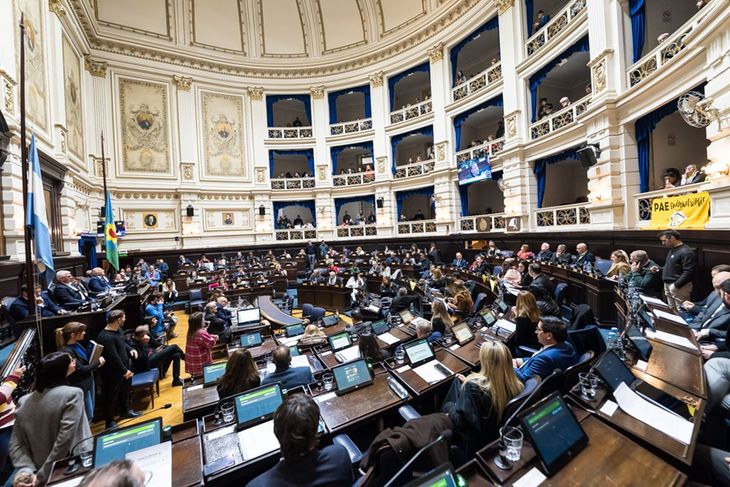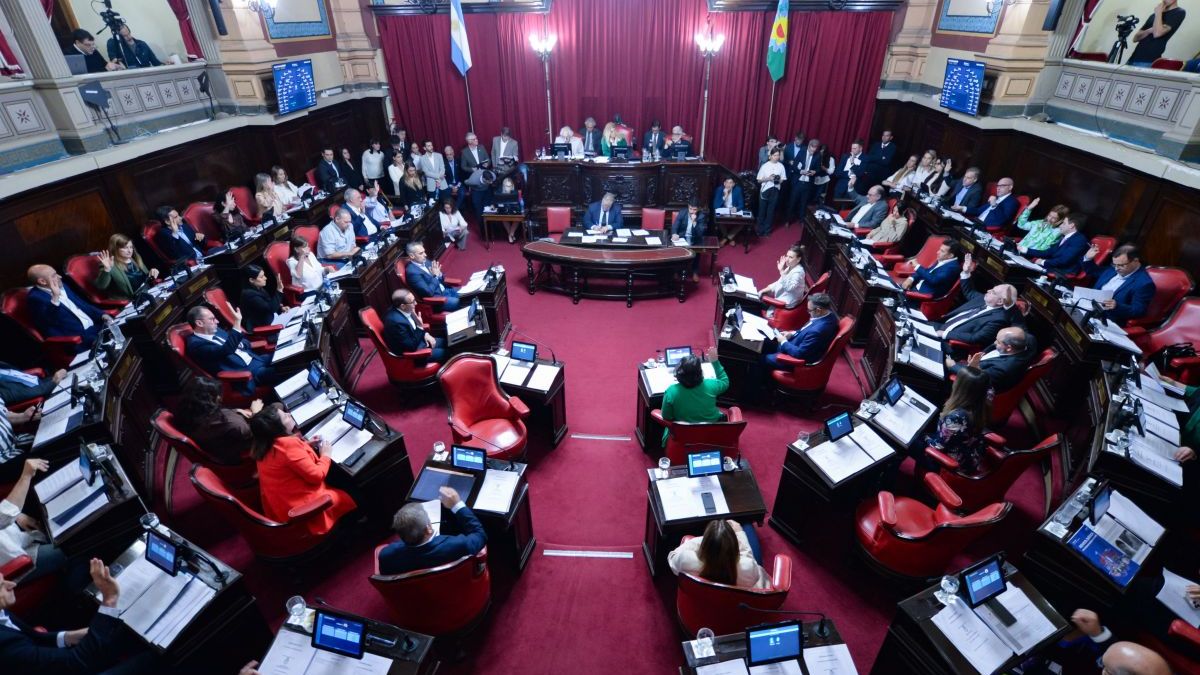The Buenos Aires Government explained that the entry of projects into the investment regime will be analyzed for approval or rejection. “based on its contribution to the productive, economic and social development of the province” and it was pointed out that The deadline for submitting proposals will be two years from the entry into force of the standard.
axel kicillof veto universities.jpg
Axel Kicillof, governor of the province of Buenos Aires.
PBA Press
Eligible projects will be those for the establishment of new plants or investments, expansion of existing plants or facilities; there will be partial tax exemptions on Gross Income, Real Estate and Stamp taxes; and fiscal stability of up to 30 years will be provided to those who join the regime.
It was also stated that the projects will be segmented into three groups, according to the amount of the investment (up to 50 million dollars, greater than 50 million and less than 200 million) and it was noted that there will be additional benefits based on the fulfillment of certain conditions such as an increase in jobs; location in low-income areas and industrial parks; gender policies; technological innovation; environmental sustainability; import substitution and increased exports.
The Province Bank
The Buenos Aires upper house will also discuss this Thursday the bill that Kicillof sent to repeal Law No. 15,008, passed during the administration of Maria Eugenia Vidaland establish a new regulatory framework that seeks to restore and expand the rights of retirees of Banco Provincia.
Among the most notable points of the initiative, it is proposed the reduction of the retirement age for women to 60 years, reversing the previous reform that had raised it to 65; the restitution of the 82% mobile for the calculation of the retirement benefits of Banco Provincia (Vidal’s law provided for the calculation at 70%) and establishing pensions at 75% (the former provincial president’s rule indicated doing so at 70%).
In December 2017, during the Vidal government, the provincial Legislature passed a law that modified the retirement regime for the entity’s employees, raising the retirement age of women from 60 to 65 years, equal to that of men.
In addition, a change was implemented in the calculation of retirement assets, based on the average of the last ten years of salaries, instead of using the last salary received. This adjustment was argued by the Executive as necessary to reduce the deficit of the Banco Provincia pension fund, which according to the government was generating an unsustainable burden for the province’s coffers.
PROVINCE BANK CASA CENTRAL.jpeg

The Buenos Aires Senate will debate the reform of Banco Provincia.
However, the rule received strong resistance from the opposition, unions and Bank employees, who considered the measure as a threat to their acquired rights and a loss in their working conditions.
In fact, the guild The Banking Associationpromoted strikes and mobilizations in rejection of the reform, while opposition legislators criticized the modifications in harsh terms.
In January 2018, the tension reached its peak, when the mayor of Ensenada, Mario Seccostarred in a controversial episode when he broke into the session room while the project was being debated, surrounded by protesters. There, he expressed his disagreement with the reform, for which he was later accused of inciting violence.
Following the modification to the retirement system, numerous legal claims were filed by associations of retirees and bank workers, who questioned the constitutionality of Law No. 15,008. In fact, more than two thousand people obtained precautionary measures that paralyze the application of several of the key points of the regulations.
Thus, in 2021, the Buenos Aires Supreme Court ruled against the reform promoted by Vidal, considering that it had violated the acquired rights of workers and asked the leadership for a political solution.
The proposal of the Buenos Aires Executive that seeks to be approved now was prepared at a dialogue table convened by the highest court, where the Banking Association, Banco Provincia and retiree organizations participated. The central objective was to achieve an agreement that guaranteed the financial sustainability of the Bank’s Retirement Fund, while restoring the violated rights.
Among the modifications included in the project, the expansion of contributions from both active and passive affiliates and from Banco Provincia itself stands out. The mandatory contributions from the banking entity will reach 21%, while the personal contribution for entrants will be 19%. In addition, the initiative provides for the creation of an additional contribution from the Bank and a budget item from the Province to ensure coverage of the Fund’s deficit.
Half sanction
Meanwhile, the Buenos Aires Chamber of Deputies approved on Wednesday and sent to the Senate the draft Audiovisual Law promoted by the Buenos Aires Executive Branch, which aims to promote the development of the national audiovisual industry, encourage the production of quality content, and guarantee the population’s access to a plural and diverse offer.
To this end, the regulation establishes a development fund of 675 million pesos, intended to finance production, distribution and exhibition projects of national audiovisual content.
The Fund will be updated annually through the Buenos Aires Budget Law, based on the variation in the value of average movie tickets established by the National Institute of Cinema and Audiovisual Arts (INCAA)resources from multilateral credit organizations, donations and legacies, and unused funds from previous years.
Buenos Aires Legislature.jpg

Chamber of Deputies of the province of Buenos Aires.
The initiative establishes the creation of a Provincial Council that – under the orbit of the Cultural Institute – will be made up of representatives of universities, unions, audiovisual associations and regional leaders of the audiovisual sector. This body will financially support the projects and collaborate in their distribution and exposure.
The law on “Promotion and development of the audiovisual industry in the province of Buenos Aires” had the votes of Peronism and the UCR-GEN Civic Agreement bloc.
Meanwhile, The PRO, La Libertad Avanza, dialogue libertarians and radicals voted against the initiative, considering that Axel Kicillof’s government should not allocate resources for cinema in the context of the economic recession.
The standard also seeks to promote the production of audiovisual content in native languages and protect cultural diversity; define a new licensing regime for the provision of audiovisual communication services; establish measures for the protection of the rights of children and adolescents in the audiovisual field and contemplate sanctions for those who do not comply.
Source: Ambito
I am Pierce Boyd, a driven and ambitious professional working in the news industry. I have been writing for 24 Hours Worlds for over five years, specializing in sports section coverage. During my tenure at the publication, I have built an impressive portfolio of articles that has earned me a reputation as an experienced journalist and content creator.




